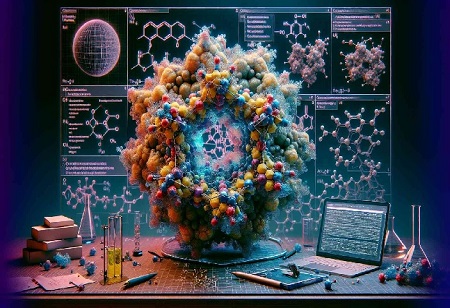The crystal sponge technology represents a groundbreaking method that allows for the direct and accurate determination of the molecular structure of liquid and gas targets. This innovative technique employs a specialized network complex to selectively absorb molecules from liquid or gas targets, arranging them over extended distances. This breakthrough overcomes the limitations of conventional single-crystal X-ray diffraction technology, enabling the precise analysis of the structure of liquid or gas molecules. This remarkable technology is considered a disruptive advancement in contrast to traditional single-crystal structure analysis methods. However, challenges such as the toxicity of experimental reagents and the need for a substantial theoretical knowledge base have hindered its successful integration into undergraduate experimental teaching.
Professors from the Chemistry Experimental Teaching Center at the University of Science and Technology of China (USTC), affiliated with the Chinese Academy of Sciences, have developed a comprehensive laboratory experiment. The experiment is designed with student-friendly reaction conditions and characterizations, providing undergraduates with the opportunity to engage with the crystalline method, a state-of-the-art technique. The outcomes of their efforts have been published in the Journal of Chemical Education. Professors Li Lingling, Zhu Pingping, and Zhang Qingwei, all associated with the Chemistry Experiment Teaching Center at USTC, specifically chose this technology from various cutting-edge research achievements.
The team aimed to make the crystal sponge technology accessible to undergraduates by adapting it into a secure, versatile, and user-friendly teaching experiment. This marked the first instance of successfully transforming the crystal sponge technology into an undergraduate teaching tool, achieved through systematic adjustments, optimization of experimental conditions, and overall teaching design. The team completed a three-semester experimental teaching program, garnering widespread approval from both students and teaching supervisors due to its high-quality training outcomes. This teaching approach has proven to be effective in enhancing students' comprehension of crystallization technology and the analysis of liquid organic compound structures. It also fosters innovative thinking among students and offers robust technical support for their future endeavours in fields such as organic synthesis and pharmacology.

